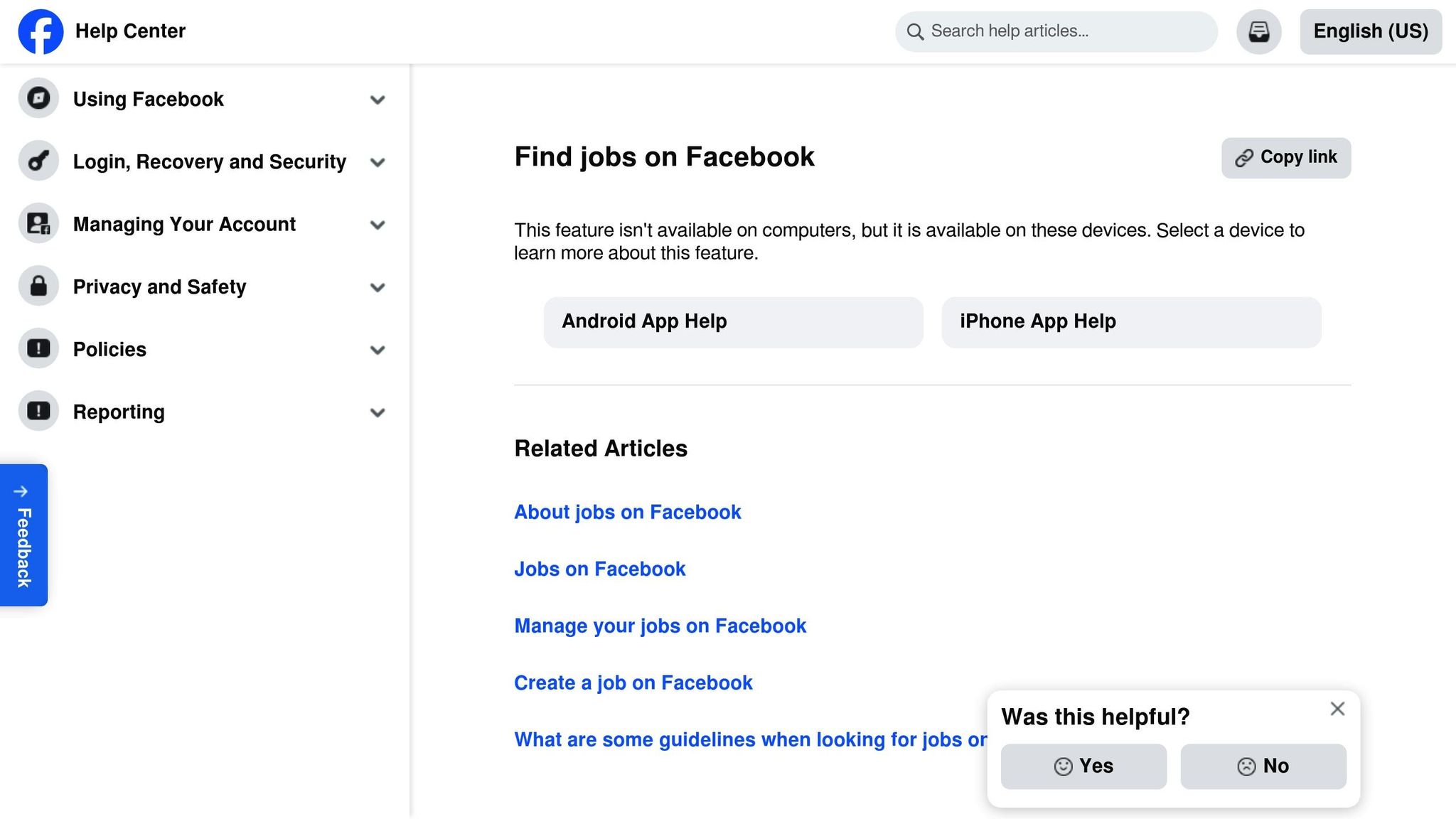How Job Boards Can Profit from Facebook Jobs & AI
The job board industry is at an inflection point. From the reemergence of Facebook Jobs to the integration of AI tools in recruitment processes, the landscape is evolving rapidly. This article dives into key takeaways from a discussion on these developments, providing actionable insights for entrepreneurs and business owners looking to tap into this dynamic market.
Introduction: Navigating the New Era of Job Boards
The job board industry finds itself in a challenging yet opportunity-rich moment. The uneven economic landscape, mixed employer spending trends, and the rapid adoption of AI in the hiring ecosystem are reshaping how job boards operate. And just as notable, Facebook has quietly reintroduced its job marketplace, signaling a potential game-changer for local and entry-level job seekers. But how can entrepreneurs turn these developments into profit-generating opportunities?
This article unpacks the transformative potential of Facebook Jobs, the implications of AI integration in recruitment, and emerging trends that could define the future of job boards. Whether you’re a seasoned business owner or just entering the space, these insights will help you navigate - and capitalize on - these changes.
Facebook Jobs: A Quiet Comeback and Its Monetization Potential

After discontinuing its job board feature two years ago, Facebook has quietly relaunched Facebook Jobs, albeit in a limited, mobile-only capacity. The platform seems to be targeting younger users seeking blue-collar, local, and entry-level jobs. However, its current design raises questions about usability and scalability - issues that entrepreneurs can position themselves to solve.
The Basics of Facebook Jobs' Reboot
- Mobile-Exclusive Platform: Facebook Jobs is currently available through Facebook Marketplace on mobile devices only.
- Consumer-to-Consumer Focus: The postings are largely for entry-level and blue-collar roles, such as construction laborers or babysitters.
- Lead Generation Model: Job seekers can only apply by messaging the poster via Facebook Messenger, making it less structured than traditional job boards.
Challenges and Potential for Entrepreneurs
- Lack of Business Tools: Facebook Jobs restricts postings to personal accounts rather than company pages, limiting its appeal to small businesses.
- Spam Concerns: The lack of robust validation mechanisms results in cluttered listings, such as poorly titled or low-quality job posts ("whatever" as a job title).
- Limited Desktop Access: The absence of desktop functionality alienates a portion of the market, particularly employers managing hiring processes on a larger scale.
Entrepreneurial Opportunities
- Build Add-On Tools: There’s a clear gap for tools that enable small businesses to post jobs via their company pages or desktop platforms.
- Develop Filtering Mechanisms: Entrepreneurs can create solutions that help filter out spam and low-quality posts, turning Facebook Jobs into a more reliable resource.
- Leverage Lead Generation: By integrating Facebook Jobs into broader job board strategies, businesses can tap into its local-first audience.
The Role of AI in Job Boards and Recruitment
The discussion highlighted the growing reliance on AI for both job seekers and employers. From crafting resumes to parsing job descriptions, AI is reshaping the hiring lifecycle. However, this technological evolution poses unique opportunities and challenges for job boards.
AI Enhancements in Recruitment
- Resume Optimization: Tools like ChatGPT are enabling job seekers to craft tailored resumes and cover letters quickly.
- Job Matching: AI-powered platforms are helping match candidates with roles that align with their qualifications and preferences.
- Applicant Screening: Employers increasingly use AI to sift through resumes, raising questions about how job boards can integrate these tools effectively.
Emerging AI Tools in the Market
Several AI-based platforms have entered the job search space, offering auto-apply features, career coaching, and personalized job recommendations. Examples include:
- Jack and Jill: This AI tool combines resume parsing with tailored job recommendations and direct communication with hiring managers.
- Lazy Apply: Enables users to apply for hundreds of jobs in minutes by automating resume submissions.
- Career.io: Offers comprehensive services, including resume writing and interview coaching, sometimes charging premium fees for conciergelike support.
Challenges for AI Integration
- Fraud Detection: AI tools are often exploited for spam applications, creating inefficiencies for employers.
- Overreliance: Job seekers who depend entirely on AI-generated resumes risk losing the personal touch that recruiters value.
- Economic Barriers: Not all job seekers can afford advanced AI tools, particularly those in low-income or blue-collar sectors.
How Entrepreneurs Can Leverage AI
- Create Hybrid Solutions: Combine AI-powered tools with human oversight to maintain personalization while scaling efficiency.
- Focus on Niche Markets: Tailor AI tools to underserved sectors, such as trades or healthcare.
- Build Employer-Focused Tools: Develop AI-based applicant tracking and screening systems to complement job boards.
Broader Trends in Job Boards: What’s Ahead?
The conversation also highlighted several broader trends shaping the job board industry, offering insights into where entrepreneurs should focus their efforts.
The Rise of Niche Platforms
Niche job boards targeting specific demographics (e.g., older workers, healthcare professionals) or industries (e.g., agriculture) are gaining traction. Examples include:
- Shipworker.com: A job board targeting shipyard workers.
- Pre-retirement Jobs: Focuses on older workers seeking flexible roles.
- FarmingWork.com: Specializes in agriculture-related opportunities.
The Evolution of Monetization Models
- Per-Hire Fees: Companies like Jack and Jill charge a percentage of the base salary for successful placements, blending job board and staffing models.
- Lead Generation Revenue: Many job boards are exploring partnerships with AI tools to monetize job seeker data through API integrations.
Challenges Ahead
- Diluted Job Posting Quality: As more platforms emerge, controlling spam and low-quality listings becomes increasingly difficult.
- Economic Uncertainty: With unpredictable hiring trends, job boards must adapt to fluctuating employer spending habits.
- Trust and Validation: Employers and job seekers alike are grappling with the authenticity of job postings and applications.
Opportunities for Innovation
- Blockchain Integration: Blockchain-based resumes could standardize and validate candidate information, reducing fraud.
- Hybrid Models: Entrepreneurs can combine elements of job boards, staffing, and career coaching into unified platforms.
- Blue-Collar Focus: As white-collar roles become saturated with AI tools, blue-collar niches present more stable growth opportunities.
Key Takeaways
- Facebook Jobs Is Back: Although flawed in execution, Facebook Jobs offers a promising lead generation opportunity for job boards catering to local, entry-level, and blue-collar roles.
- AI Is Transforming Recruitment: Platforms like Jack and Jill and Lazy Apply are reshaping how candidates apply for jobs, but they also raise concerns about fraud and overreliance.
- Niche Job Boards Are Thriving: Platforms targeting specific industries or demographics (e.g., older workers, healthcare) are increasingly relevant.
- Creative Monetization Models Are Key: From per-hire fees to API integrations, job boards must explore diverse revenue streams in a competitive market.
- Fraud Detection Will Be Crucial: Both job boards and employers will need robust tools to filter out spam and improve application quality.
- Opportunities in Blue-Collar Markets: With consistent demand and less AI saturation, blue-collar niches offer stable growth potential.
- Future-Proofing with Blockchain: Resumes verified through blockchain could solve issues with authenticity and streamline hiring.
Conclusion: Building Job Boards for the Future
The job board industry is in a state of transformation. For entrepreneurs, the challenges present opportunities to innovate and carve out profitable niches. From leveraging Facebook Jobs’ resurgence to integrating AI solutions thoughtfully, the key lies in balancing scalability with authenticity.
By staying ahead of trends like AI adoption, niche specialization, and creative monetization, entrepreneurs can build job boards that not only survive but thrive in this evolving market. The next decade may bring significant shifts, but with the right strategy, it will also bring unparalleled opportunities.
Source: "REPLAY: Job Board Owners Fall Meetup" - JobBoardSecrets, YouTube, Oct 22, 2025 - https://www.youtube.com/watch?v=9DWP21hg-Ww
